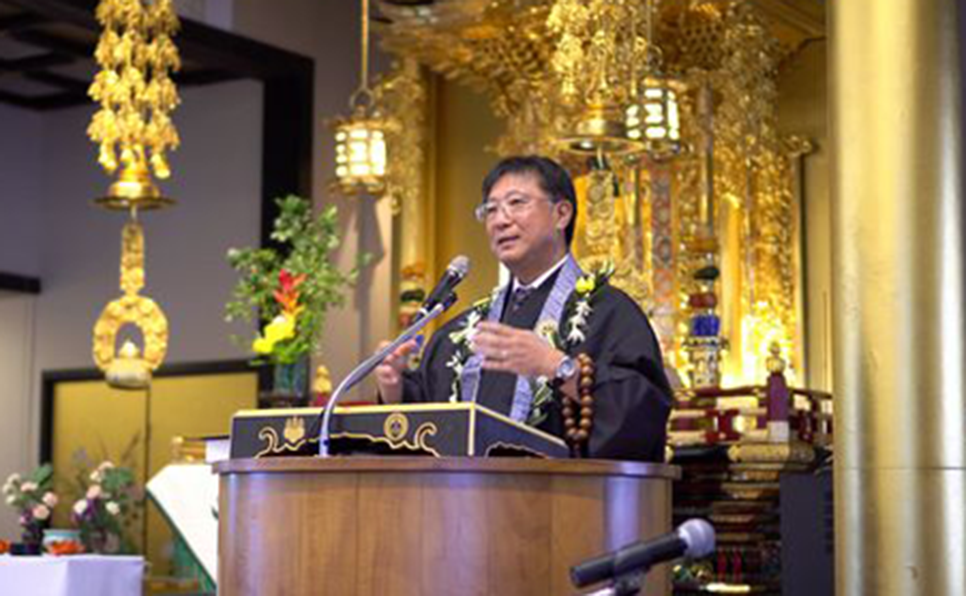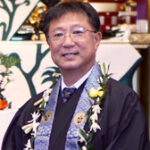Namo Amida Butsu
Reflections on Imperfection and Change
Since my recent surgery, I’ve experienced significant weight loss, which has been both surprising and concerning. In the days following the operation, I struggled with eating, as swallowing became difficult while my palate was healing. My wife, ever supportive, tried to prepare soft foods like okayu (rice soup) for me, but I found it challenging to accept any nourishment during those initial weeks. Knowing I had lost weight, I sought extra nutrition through drinks like Ensure, hoping to regain my strength.
When I finally decided to weigh myself on a brand-new digital scale, which boasted high accuracy, I was astonished to see that I had lost over 23 pounds. Following my doctor’s advice to drink plenty of water, I consumed a quart right after checking my weight, expecting a change. To my disbelief, the scale registered a loss instead of a gain, leaving me perplexed and frustrated. How could I lose weight after hydrating? This experience highlighted a crucial lesson: even advanced technology can sometimes fail to reflect our realities, reminding us that our experiences can be just as perplexing as they are enlightening.
The Nature of Impermanence T
he Buddha’s teachings emphasize that nothing is perfect, and everything is impermanent. This profound truth often becomes glaringly evident during challenging times when we are confronted with the harsh realities of life. Death serves as a poignant reminder of our powerlessness and the essential truths we often overlook. It teaches us that life is fleeting and that we should not take our moments for granted, yet many of us still tend to ignore this guidance, perhaps believing it does not apply to us in our daily lives.
Each moment we experience is precious and, once passed, can never be reclaimed. Our lives are akin to a burning candle; the flame may flicker with a gust of wind, or the candle may burn down completely, illustrating the transitory nature of existence. We must remember that nothing lasts forever, and embracing this reality can help us appreciate each moment more fully.
Finding Truth in Faith
Yuien, a distinguished disciple of Shinran Shonin, expressed deep trust and joy in the teachings of the Nembutsu, particularly in the “Tan-ni-sho” chapter II. He articulated that we are saved by Amida through the simple act of uttering the Nembutsu. This profound faith reflects the essence of Shinran’s teachings, as he entrusted Amida’s vow wholeheartedly, demonstrating the power of unwavering belief in divine compassion.
During a speaking engagement in Hiroshima, I encountered a thought-provoking phrase from temple members: “Monto mono shirazu,” which translates to “Hongwanji members do not know much common sense.” The deeper meaning of this phrase is “Monto mono oji sezu,” signifying that Hongwanji members possess true faith. This faith allows them to live joyfully, relying on the guidance of the Nembutsu without being burdened by concerns about superstitions or petitionary prayers. They embody a life of joy rooted in the assurance of Amida’s salvation, free from unnecessary worries.
As we gather for our special Eitaikyo service in November, we are reminded of the invaluable guidance we have received from dedicated Nembutsu followers throughout the years. This service serves as a moment of reflection and appreciation for the teachings that have shaped our lives. It is essential that we acknowledge this guidance and actively share the profound truths of Amida’s teachings with our children and grandchildren, ensuring that the light of the Nembutsu continues to shine brightly in future generations.
Shinran Shonin eloquently expressed in his “ON DOKU SAN, Hymns of the Dharma Age”:
Nyorai Daihi no Ondoku wa Miwo koni shitemo hozubeshi Shishu chishiki no Ondokumo Honewo kudakitemo shasubeshi
These verses remind us of the immense compassion of Amida and our obligation to repay it, even to the depths of our being. We have received this profound guidance from our dedicated pioneers across generations—Issei, Nisei, Sansei, and Yonsei. May we honor their legacy by actively passing on the invaluable teachings of the Nembutsu to those who follow, nurturing a continuous connection w

